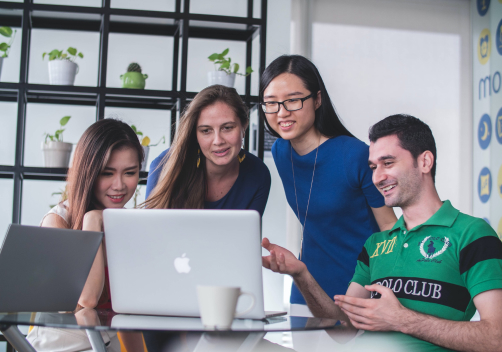PETALING JAYA: With more people vaccinated, borders reopening, and some Covid-19 restrictions removed, life is once again taking on a new form.
Undeniably, it is not quite the life we knew before the pandemic struck, as face masks and SOPs remain even as workers return to offices and students to schools and universities.
But how are people in general handling these changes? Are introverts missing the security of home as they head back to the office? Are extroverts raring to plan their next dinner with friends at a restaurant?
Here are some eye-opening revelations.
-ADVERTISEMENT-
Ads by
Introverts versus extroverts: who adjusted better during the lockdowns?
“At the start of the pandemic, many experts thought that introverts would handle the stay-at-home orders better as these personality types tend to thrive on their own.
“However, there are studies suggesting that extroverts actually fared a little better,” revealed Sheila Menon, Principal of the London College of Clinical Hypnosis (LCCH) Asia and Australia and the CEO of the LSCCH Therapy Centre.
“This could be due to the fact that being an extrovert is associated with positive emotions, optimism, and resiliency. On the other hand, an introvert is associated with fear and nervousness,” Sheila tells FMT, adding that both personality types were affected by the lockdowns and experienced mental distress or challenges in their own way.
Baby steps for introverts
So, how can introverts cope with the changes another new normal brings?
“Set simple goals and keep them, as this type of structure provides a sense of purpose,” Sheila shares.
“Going out for a walk or a jog can also be very therapeutic. Furthermore, research shows that walking in nature, or at least where you can see trees and fields is good for building resilience.”
Although the prospect of socialising after a prolonged lockdown may be daunting for introverts, Sheila believes it’s important to stay connected.
“Although technology can help to connect with others, make a bit of an effort to meet up with good friends in sensible numbers while maintaining a healthy social distance,” suggests Sheila, adding that sharing and having social connections are important to validate our emotions.
Prioritising family time, trying a new hobby and sharing your experience with a friend are other ways to stay connected.

Extroverts to exercise caution during this transition
How about extroverts who enjoy social interactions?
Extroverts may find the return to social routines a relief, Sheila says, although cautioning that keeping things in moderation and following SOPs at all times is important.
She says extroverts must be sensitive to other people’s feelings, especially when it comes to wearing masks during social gatherings as others still harbour fears of contracting the virus despite being vaccinated.
Apart from this, there could be some in the social circle of extroverts who find it a challenge to get back to socialising after so many months at home, and this is something extroverts may not typically face and understand.
“It is important to take things slowly. Forgive yourself for any feelings of apprehension and be kind to yourself as well as others,” Sheila shares.
Be tolerant of others
As the world adjusts to yet another new normal, not everyone will adapt in the same way or pace, and it is important for both introverts and extroverts to be sensitive to others.
“Change causes uncertainty, and many people are likely to feel stressed during this transition time. It is important to remember that everyone’s emotional resilience will be low, so be forgiving of raw tempers, snappish retorts, or a lower than usual tolerance,” she says.

Get the help you need if you are struggling
What would be the signs that you or someone you know are finding it difficult to cope?
“Many people experienced anxiety and depression during the pandemic and these feelings will not disappear overnight,” says Sheila, adding that certain symptoms such as insomnia, comfort eating, worrying about the future or having low motivation may persist.
“Although it is normal to feel a little apprehensive, you should seek help when fears start taking over your every thought or when you find yourself feeling worried or anxious all the time,” she says.
“The first step is to recognise that these feelings and behaviours are a consequence of living through a challenging and frightening time, and it is important to practise self-care,”
Getting enough rest, making time for yourself, eating healthy, and perhaps even exercising a little are some of the practical ways you can do this.

Sheila, who is also a clinical hypnotherapist and Fellow of the British Society of Clinical Hypnosis Asia, believes that it is also good to practise relaxation techniques and listen to mindfulness or self-hypnosis tapes.
“It is helpful to remember other challenges that you have previously encountered in your life, and how you worked your way through them. You can talk to a friend, but if you find yourself unable to feel joy or getting tearful several times daily, it is time to seek a therapist’s help,” Sheila suggests, adding that there are many types of therapies available.
An increasingly common one is virtual therapy which is safe and private while being just as effective as in-person therapy.
“The most important thing is to establish that your therapist is qualified to deal with your issues and offers you a safe, non-judgemental, and welcoming space,” adds Sheila.
This post was featured on Free Malaysia today. Link here Introvert? Extrovert? Here’s how to adjust to the new normal | Free Malaysia Today (FMT)


